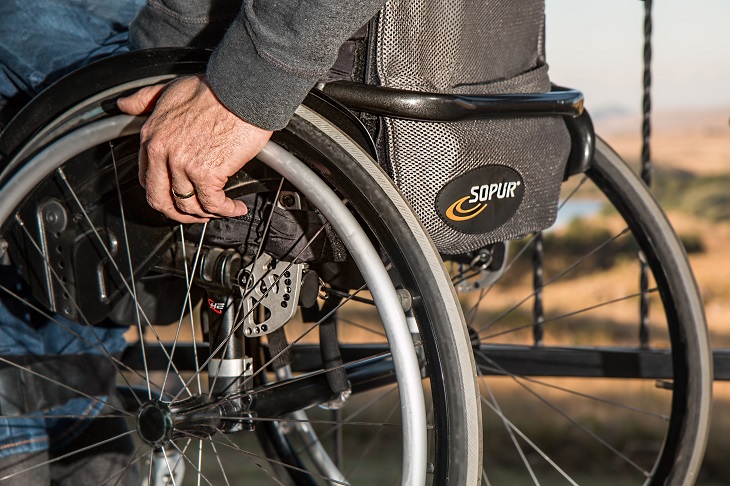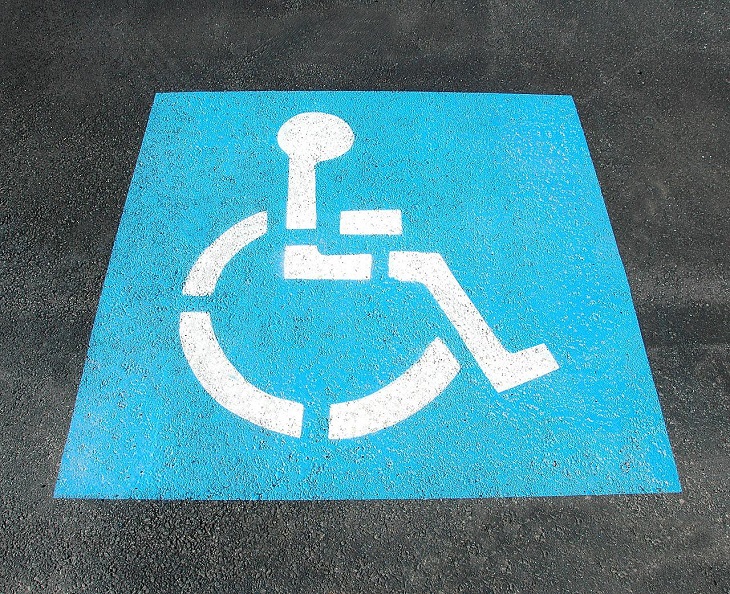Having a disabled parking permit can make a world of difference. If you are a disabled driver who’s a resident of Nebraska, you’re probably already aware of the benefits of a handicap parking permit. Disabled parking permits enable the driver of the vehicle to park in specially allocated spaces that are located close to the entrance/exits of buildings and/or specially adapted to larger vehicles (including those that require ramp access for a wheelchair).
The only way to make use of these disabled parking spaces, even for those with a physical disability, is through displaying a valid Nebraska disabled parking permit. However, as you’re probably aware, it’s not only physical or visible illnesses that qualify. In fact, there are many “invisible illnesses” that also make the sufferer eligible for a permit. These are conditions that greatly impact someone’s ability to function on a daily basis, but may not present physically.
Below, we’ll be going through some of the qualifying conditions for a disabled parking placard in Nebraska – including those that may not seem super obvious! So if you’re asking yourself “What qualifies you for a disability placard in Nebraska?”, simply read on to find out!
Qualifying Conditions For A Disabled Parking Placard In Nebraska
The below is by no means an all-encompassing list of qualifying conditions, but is a guide to the most common ones as well as some you may not have thought of previously. We’ve based this information on the Nebaska DMV website – however, if you are still unsure whether or not your disability qualifies, you may still wish to speak to your physician to discuss your options. Now, let’s get started!

The Nebraska DMV states that the basic requirement for a disability to qualify for disabled parking is the following: “The applicant must have a certified medical condition that limits personal mobility resulting in the applicant’s inability to travel more than two hundred feet without assistance such as a wheel chair, crutch, walker, prosthetic or other device.”
So first of all, if you suffer from a disability that severely limits the distance you can walk, then you can of course apply for a permit. Again, the location of disabled parking spaces means that those with reduced mobility can easily access buildings without needing to walk a long distance, so the benefits of a permit for those who struggle with mobility are clear.
Severe visual, physical, or neurological impairment
If you suffer from an illness of this type, then you qualify for a Nebaska parking permit. This would include those with seriously impaired vision, or those who have recovered from a severe head injury, for example. Some extreme forms of headaches are included in this bracket, so make sure you discuss with your doctor if you suffer from migraines or debilitating tension headaches and think a permit would help you on the road, as you may be eligible.
Severe respiratory problems
If you suffer from a condition affecting your respiratory system, such as lung cancer or severe asthma, it may also be worth discussing your options with a physician. If you require portable oxygen, this also applies.
Class III or Class IV heart conditions
As per the American Heart Association guidelines, cardiac conditions that fall into these categories qualify for a disabled parking permit in most U.S. states.
Loss of limb, or loss of limb function
Those who have lost one or more limbs, or if the use of that limb is heavily or completely decreased, then you can qualify for a disabled parking permit.
Who qualifies for a disabled license plate in Nebraska?
The qualifying conditions for a disabled license plate in Nebraska are the same as those for a disabled parking permit. You can have both a permit and parking plates – just make sure you tick the applicable box on your disabled parking plates application form. The benefit of plates is that they are always visible on your vehicle, so you don’t need to worry about remembering to display your permit after you’ve parked.
How do I get a disability placard in the state of Nebraska?
If you have a qualifying condition, you should first go onto the Nebraska DMV website to register for a permit. Then, you’ll need to set up an appointment with a licensed Nebraska physician who can certify your application – Dr Handicap can help with this! Once the physician has certified your application by filling out the relevant section online, you need to provide a valid Nebraska ID and pay any applicable fees. In terms of fees, placards are free but plates incur a fee, so make sure to check this.
We hope this guide to qualifying conditions in Nebraska has been helpful! Get in touch for help in speaking to a licensed Nebraska physician today.
Featured image by John Matychuk on Unsplash






